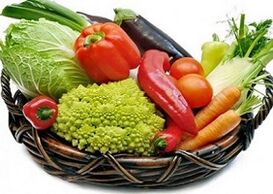
If you are monitoring your sexual health, the first thing to consider is whether you have all the vitamins and minerals needed for potency in your diet.
By adding minerals and vitamins to men's diet, problems related to male potency can be eliminated. The question is which substances actually increase effectiveness.
Vitamin treatment should be carried out after consultation with the attending physician, because excessive vitamins, trace elements and minerals can cause disorders and disorders of the body, as well as their deficiencies. The older a person is, the more he needs nutrition, because over the years, the body gradually loses the ability to absorb vitamins from food.
Zinc
Maybe it is the main trace element in men. Zinc is the building material of testosterone. Without zinc, testosterone molecules would not be formed. Therefore, if there is no zinc-no testosterone, no testosterone-there is no potency. Zinc can increase sperm motility and prevent prostatitis. Zinc is also essential for normal development, growth and immunity.
Zinc-containing products: fish (bass, trout, herring, saury, salmon), wheat bran, oysters, shrimp, garlic, nuts, egg yolks, squid, anchovies.
Men's daily zinc intake: 15 mg.
selenium
Selenium is also a very important mineral for men. Selenium affects reproductive function and is very beneficial to infertile men because selenium can improve sperm quality. Selenium participates in the biosynthesis of testosterone and supports the functions of the genitals.
Products containing selenium: garlic, eggs, seafood (fish, squid, shrimp), brown bread, corn, tomatoes.
Men's daily selenium intake: 55-70 micrograms.
Vitamin C
In addition to maintaining the basic function of immunity, it can also increase the elasticity of blood vessels and improve blood circulation, including blood circulation to the genitals. Increase testosterone synthesis. It is a preventive agent for prostatitis.
Foods containing vitamin C: cabbage (fresh and sauerkraut), citrus fruits (lemon, orange, tangerine, grapefruit), green onions, parsley, carrots.
Men's daily vitamin C intake: 100 mg.
Vitamin E
Natural antioxidants can promote cell renewal and increase its resistance to destruction. Normalize capillary permeability, thereby improving blood circulation, including the genitals.
Foods containing vitamin E: vegetable oil (olive oil, sunflower, corn), egg yolk, celery, green onions.
Men's daily vitamin E intake: 30 mg.
B vitamins
Increase the synthesis of testosterone, the main male sex hormone. Protect the liver and restore the human energy structure. Participate in 15, 000 biochemical processes in the human body.
Products containing B vitamins: dairy products (milk, cheese, cheese), nuts, carrots, fish.
Men's daily intake of B vitamins: 2 mg of vitamin B6 and 2 micrograms of vitamin B12.
You should not only rely on vitamin-mineral complexes derived from medicines, because some synthetic vitamins do not function properly in the body (for example, vitamin C or ascorbic acid). Vitamins and minerals extracted from natural foods are more effective than synthetic foods.

















































































